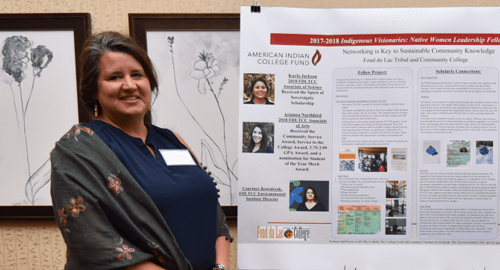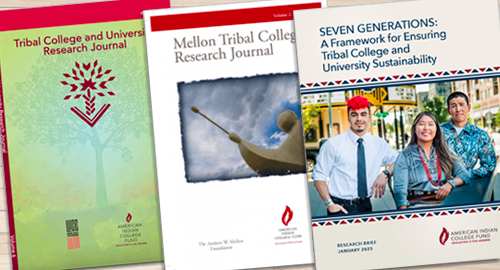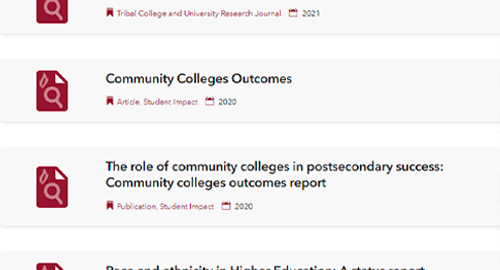Our Work

The American Indian College Fund invests in Native students and tribal college education to transform lives and communities.
The College Fund and its supporters uphold the promise and importance of educational success for Native people and all of our futures.


Students
The American Indian College Fund is creating a college-going culture and college success through funding and programs that increase the persistence and graduation rates of American Indian and Alaska Native students.
- $166 million
Scholarship Support Awarded Since 1989
- 159,652
Scholarships Awarded since 1989
- $11million
Direct Student Support Other Than Scholarships Awarded since 1989
How We Support Students:
Students
The American Indian College Fund is creating a college-going culture and college success through funding and programs that increase the persistence and graduation rates of American Indian and Alaska Native students.
- $166 million
Scholarship Support Awarded Since 1989
- 159,652
Scholarships Awarded since 1989
- $11million
Direct Student Support Other Than Scholarships Awarded since 1989
How We Support Students:
Student Success
The American Indian College Fund works with scholars throughout their unique education journeys to build pathways to college and support their visions of success. We develop connections with tribal college and university (TCU) faculty and staff, along with high school counselors and teachers, with one goal in mind: to grow outreach and programming in tribal communities to help more Native students achieve their academic, professional, and personal goals. In addition to providing Native scholars with the necessary financial support to access college, we also connect thousands of students across the country to resources that allow them to succeed once they are enrolled in college. Our scholars say the culturally relevant programming and student support we provide motivates them to plan for success. Not incidentally, they say our belief in them is the motivating force that keeps them working to succeed.
College Fund scholars who enrolled in two-year programs have a graduation rate 1.3 times higher than non-scholars and 1.5 times higher when enrolled in four-year programs.
of employed scholar
graduates work in
jobs that give back to
their communities.
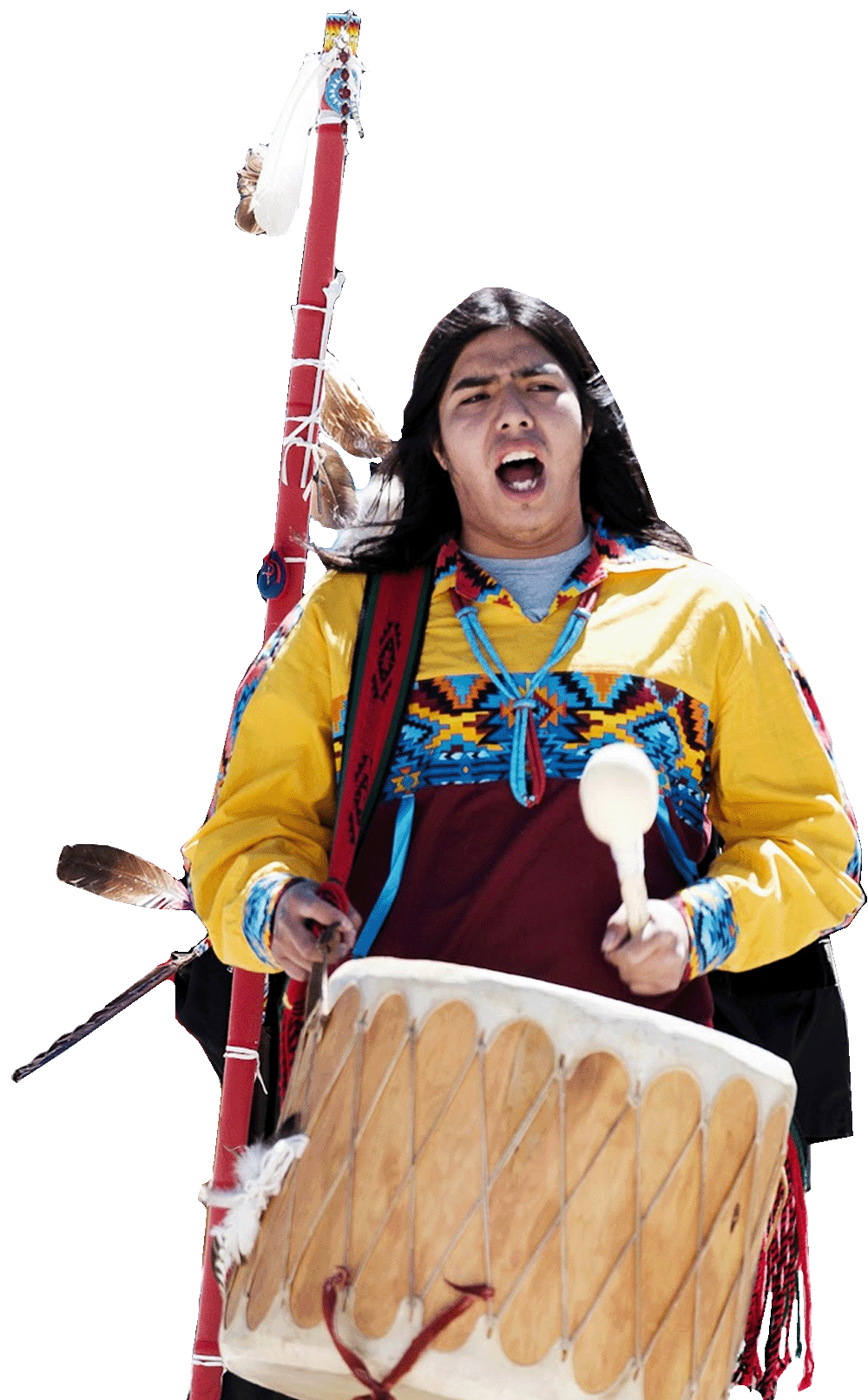
Institutions
The College Fund provides tribal colleges and universities (TCUs) the opportunity to examine their current approaches and design long-term strategies that include holistic, place-based, and collaborative student supports to promote transformative and systemic change that impacts Native student success.
- $134 million
Estimated TCU Capacity and Program Support
How We Support Institutions:
iaia.edu/fotos
Photograph by Jason S. Ordaz,
Institute of American Indian Arts (IAIA)
Institutions
The College Fund provides tribal colleges and universities (TCUs) the opportunity to examine their current approaches and design long-term strategies that include holistic, place-based, and collaborative student supports to promote transformative and systemic change that impacts Native student success.
- $134 million
Estimated TCU Capacity and Program Support
How We Support Institutions:
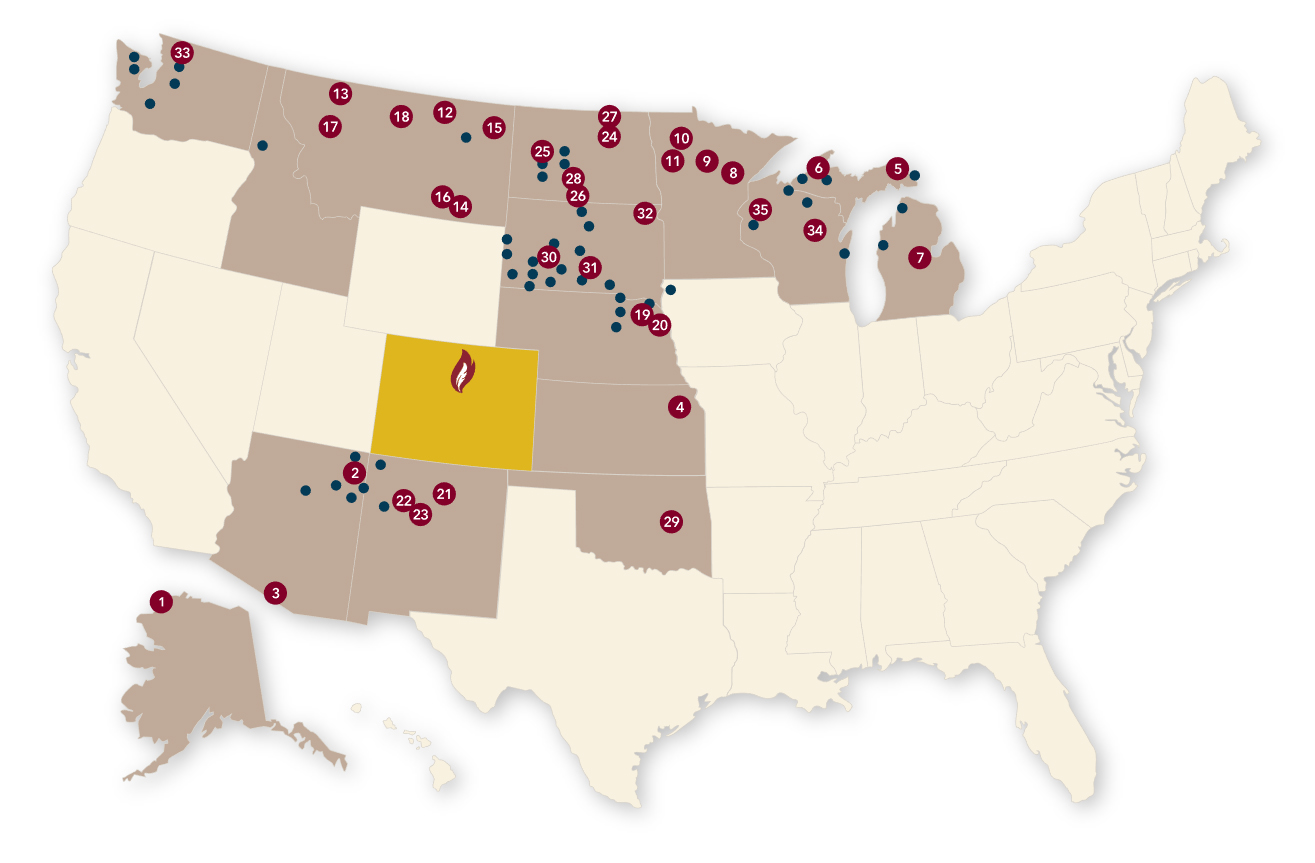
Tribal Colleges and Universities
Tribal colleges and universities provide dynamic higher education opportunities, most on or near reservation lands. Known for their remarkable programs, culturally-relevant curricula, and familial student care – tribal colleges allow students to further their careers, attain an advanced degree, or better support their communities.


Faculty
Faculty members are essential to the success of Native students and to the future growth and sustainability of TCUs. As Indigenous-centered educators and researchers, they play a multifaceted role at their institutions. Faculty members teach in person and online, develop culturally relevant curriculum, advise and support students, serve on committees, conduct place-based research, and engage with their communities.
The College Fund is the only organization focused on supporting TCU faculty members’ academic advancement, professional growth, and peer networking. We offer graduate fellowships, professional development grants and workshops, opportunities to conduct research and share it, communities of practice, and convenings. Our programs help faculty build their skills and knowledge as instructors and scholars, support their wellbeing, facilitate relationship-building with their peers at other TCUs, and much more.
- 1,665 full time faculty
and adjunct instructors teaching across 35 TCUs
How We Support Faculty:
iaia.edu/fotos
Photograph by Jason S. Ordaz,
Institute of American Indian Arts (IAIA)
Faculty
Faculty members are essential to the success of Native students and to the future growth and sustainability of TCUs. As Indigenous-centered educators and researchers, they play a multifaceted role at their institutions. Faculty members teach in person and online, develop culturally relevant curriculum, advise and support students, serve on committees, conduct place-based research, and engage with their communities.
The College Fund is the only organization focused on supporting TCU faculty members’ academic advancement, professional growth, and peer networking. We offer graduate fellowships, professional development grants and workshops, opportunities to conduct research and share it, communities of practice, and convenings. Our programs help faculty build their skills and knowledge as instructors and scholars, support their wellbeing, facilitate relationship-building with their peers at other TCUs, and much more.
- 1,665 full time faculty
and adjunct instructors teaching across 35 TCUs
How We Support Faculty:
Faculty Development
We support tribal college and university (TCU) faculty and staff through fellowships, professional development grants, and scholarly research opportunities.
Research Journals and Reports
The College Fund is ongoing in our work to provide meaning research and resources to support TCU faculty in disseminating their research to Indigenous communities and the wider research community.
Resource Center
Browse our extensive library of research articles, abstracts, reports, documents, and links to outside sources.
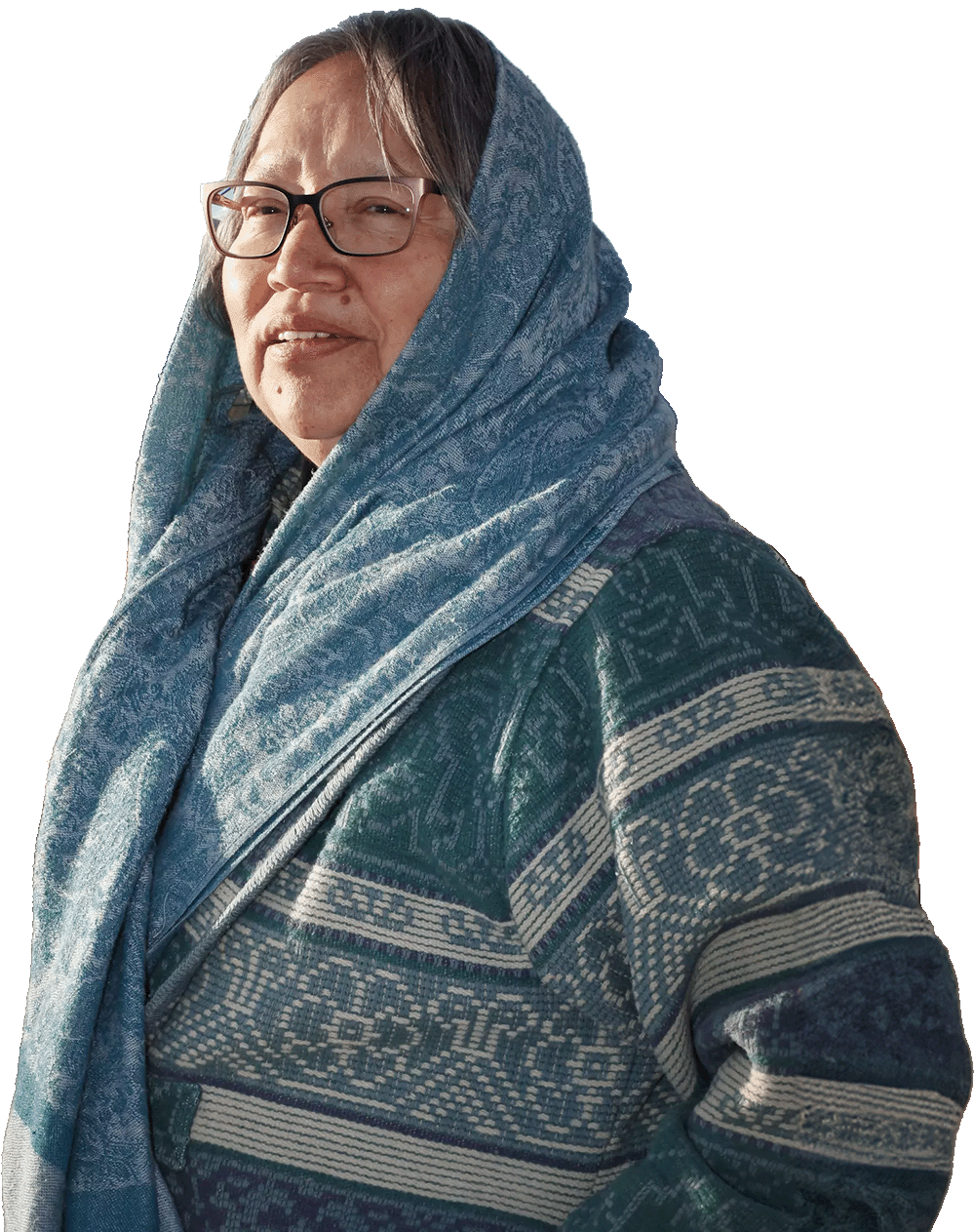
Community
The College Fund supports Tribal Colleges and Universities (TCUs) in their efforts to strengthen students, emergent leadership, education, language and culture, health and wellness, the environment, and so much more, all moving our mission of transforming Native lives and communities. Our work in partnership with TCUs focuses on supporting our relatives from cradle to career and beyond.
- 254 tribal nations
represented among College Fund Scholars
How We Support Community:
Community
The College Fund supports Tribal Colleges and Universities (TCUs) in their efforts to strengthen students, emergent leadership, education, language and culture, health and wellness, the environment, and so much more, all moving our mission of transforming Native lives and communities. Our work in partnership with TCUs focuses on supporting our relatives from cradle to career and beyond.
- 254 tribal nations
represented among College Fund Scholars
How We Support Community:
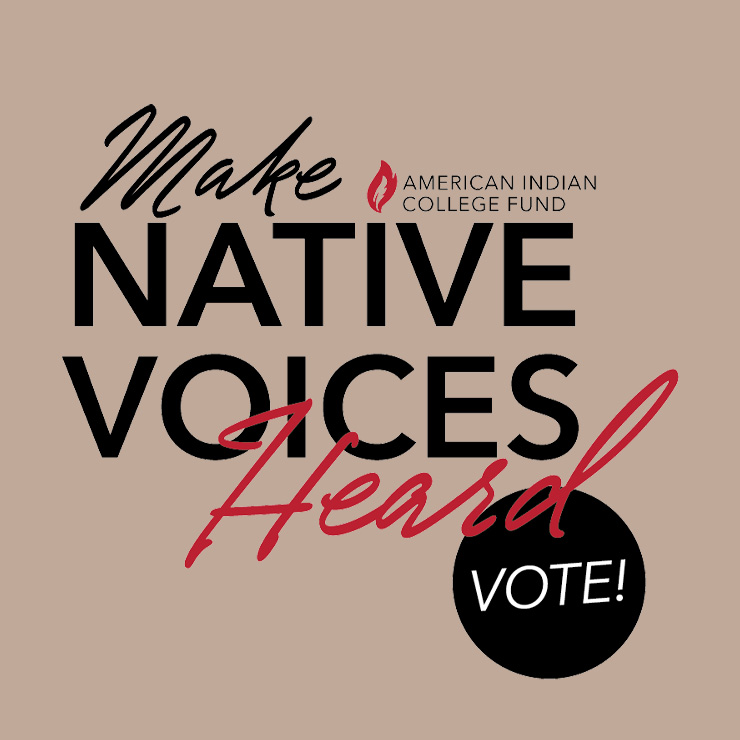
Advocacy
We advocate for Native students, TCUs, and our communities in many ways. Get involved by supporting Native student access to higher education access, getting out the Native vote to impact education policy, promoting Native student inclusion and visibility on campus, and more!

